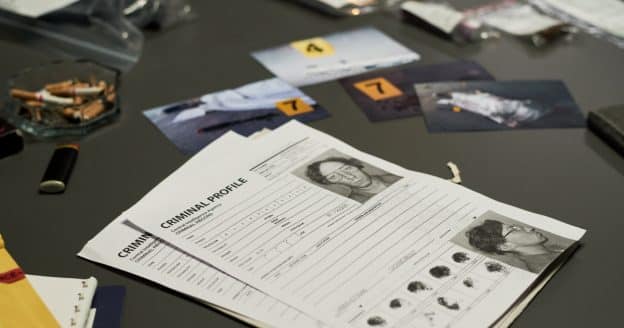Recursos sugeridos para leitura complementar
- Model Policy on Missing Persons, The International Association of Chiefs of Police https://www.theiacp.org/sites/default/files/2018-08/MissingPersonsPolicy.pdf
- Missing and Abducted Children: A Law-Enforcement Guide to Case Investigation and Program Management, The National Center for Missing and Exploited Children and the office of Juvenile Justice and Delinquency Prevention p. 25-46 and p. 84-87. https://www.missingkids.org/content/dam/missingkids/pdfs/publications/nc74.pdf
- Law Enforcement Policy and Procedures for Reports of Missing and Abducted Children,
The National Center for Missing and Exploited Children https://www.missingkids.org/content/dam/missingkids/pdfs/NCMEC-LE-Model-Policy.pdf - - Council of Europe Convention on Action against Trafficking in Human Beings: Provides definitions and protocols related to human trafficking, a common form of involuntary disappearance (https://www.coe.int/en/web/conventions/full-list/-/conventions/treaty/197)
- - European Union Agency for Fundamental Rights (FRA) Reports: Offers insights and statistics on missing persons in Europe, including those who are involuntarily disappeared (https://fra.europa.eu/en/publications-and-resources/data-and-maps/survey-data
- A practical guide for hotline operators, Missing Children Europe: Chapter 2. Cross-Border Procedures: cooperation amongst 116000 hotlines
https://116-000.it/wp-content/uploads/2012/05/practical-guide.pdf - How do EU Member States treat cases of Missing Unaccompanied Minors, European Commission
https://home-affairs.ec.europa.eu/system/files/2020-04/inform_missing_uam_final_15042020_0.pdf - Yellow Notices, Interpol
https://www.interpol.int/How-we-work/Notices/Yellow-Notices
Referências
https://www.amberalert.eu/news/missing-children-bridging-the-gap
https://www.college.police.uk/app/risk/risk
https://www.ohchr.org/en/instruments-mechanisms/instruments/convention-rights-child
Missing Persons Investigations Guidelines & Curriculum © California Commission on Peace Officer Standards and Training Published April 2007 Revised May 2021
https://post.ca.gov/Missing-Persons
MISSING PERSONS - A Handbook for Parliamentarians, ICRC, N°17, 2009
International Centre for Missing & Exploited Children Online Glossary of Terms: icmec.org/pressroom
Luxembourg Guidelines: luxembourgguidelines.org
Machado, Armando - “A investigação criminal no desaparecimento de pessoas em Portugal” – dissertação para obtenção do grau de Mestre em Direito na Universidade Autónoma de Lisboa (Julho de 2013)
“Desaparecimento de pessoas – uniformização de estratégias de atuação na investigação” – relatório da comissão de 2008, nomeada pelo Diretor Nacional da PJ.
“Guidance on the management, recording and investigation of missing persons” – primeira edição - 2005, da Association of chief police officers – Londres.
http://www.policiajudiciaria.pt
https://www.amberalert.eu/check-think-report
Desaparecidos, IPJCC, Loures, 7 de junho de 2024, Inspetor Henrique Carlos Magueija
Conteúdo do curso


















